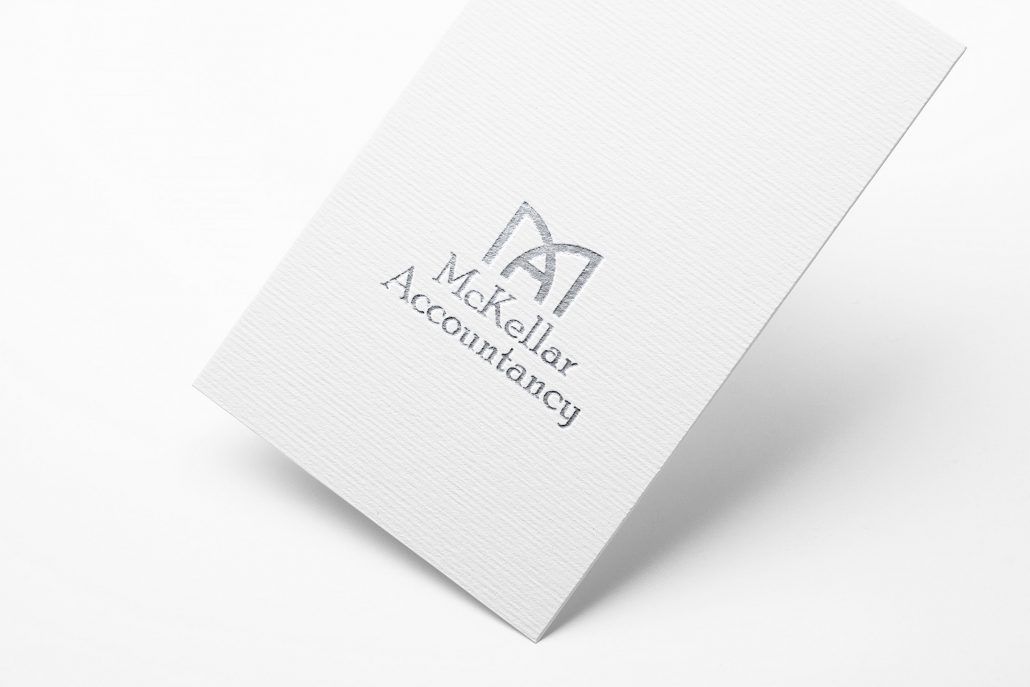[av_one_full first min_height=” vertical_alignment=” space=” custom_margin=” margin=’0px’ padding=’0px’ border=” border_color=” radius=’0px’ background_color=” src=” background_position=’top left’ background_repeat=’no-repeat’ animation=”]
[av_image src=’https://www.mckellaraccountancy.com/wp-content/uploads/2017/02/Metallic-Foil-Logo-MockUp-1500×430.jpg’ attachment=’400′ attachment_size=’featured’ align=’center’ styling=” hover=” link=” target=” caption=” font_size=” appearance=” overlay_opacity=’0.4′ overlay_color=’#000000′ overlay_text_color=’#ffffff’ animation=’no-animation’][/av_image]
[/av_one_full][av_one_full first min_height=” vertical_alignment=” space=” custom_margin=” margin=’0px’ padding=’0px’ border=” border_color=” radius=’0px’ background_color=” src=” background_position=’top left’ background_repeat=’no-repeat’ animation=”]
[av_heading heading=’McKellar Accountancy May eNews’ tag=’h3′ style=” size=” subheading_active=” subheading_size=’15’ padding=’10’ color=” custom_font=”][/av_heading]
[/av_one_full]
[av_one_full first min_height=” vertical_alignment=” space=” custom_margin=” margin=’0px’ padding=’0px’ border=” border_color=” radius=’0px’ background_color=” src=” background_position=’top left’ background_repeat=’no-repeat’ animation=”]
[av_textblock size=” font_color=” color=”]
eNews May 2018
In this month’s eNews we report on the latest announcement from HMRC regarding Making Tax Digital. We also consider the looming deadline for GDPR, changes to tax reliefs following the Scottish Budget and issues to do with EMI share options. With articles on benefits in kind forms P11D,the VAT fuel scale charges and a new benefits exemption for workplace charging of employee vehicles there is lots to consider.
GDPR compliance deadline looms
Tax reliefs following the Scottish Budget
EMI options may not qualify for tax relief
HMRC consultation on benefits exemption for workplace charging facilities
Changing priorities at HMRC
Over the coming years, the government plans to phase in its landmark Making Tax Digital (MTD) initiative, which will see taxpayers move to a fully digital tax system. However HMRC has shared a statement about how they are prioritising change in the department and as a result some parts of MTD will be delayed. HMRC has acknowledged the challenges in:
- exiting the EU and
- the ambition to become the world’s most digitally advanced tax authority.
While some of the finer details are still being decided, HMRC have announced that, to achieve the above, some aspects of MTD are to be delayed. HMRC still plan to go ahead with MTD for VAT from April 2019. Information on some of the delayed projects is set out below:
Plans to introduce further digital services for individuals
There will be ‘halted progress’ on simple assessment and real-time tax code changes. Additional services in this area will only be added where they reduce phone or post contact or otherwise deliver ‘significant savings’.
Other digitalisation of services affecting fewer individuals
This includes Inheritance Tax payments, Tax Advantaged Venture Capital Schemes applications and PAYE Settlement Agreements
Creation of the single digital account for all businesses
HMRC has confirmed this will now happen at a ‘slower pace’. HMRC has confirmed the single digital account remains an aim of the department and they stress it will not impact the delivery of Making Tax Digital.
Voluntary Making Tax Digital for Business service for income tax
HMRC has confirmed this will continue to be available for any sole trader wishing to make quarterly updates to HMRC.
Mandatory Making Tax Digital for VAT – still ‘on track’
HMRC stated that MTD for VAT is still on track. VAT registered businesses with a turnover in excess of the £85,000 VAT registration threshold, will be required to comply with the requirements of MTD for VAT for all VAT periods commencing on or after 1 April 2019.
In addition, the government has confirmed that, it will not mandate any further MTD for Business changes before 2020, at the earliest.
Internet link: ICAEW blog
GDPR compliance deadline looms
With less than one month until the introduction of the new General Data Protection Regulation (GDPR), the Federation of Small Businesses (FSB) is warning small and medium-sized enterprises (SMEs) that time is running out for them to prepare.
The business group stated that small businesses face an ‘uphill challenge’ in ensuring that they are compliant by the date when GDPR takes effect of 25 May 2018.
Under the new rules, organisations which collect, store and process individuals’ personal data will be subject to new obligations, with an increased emphasis on accountability and transparency.
The financial penalties for failing to comply are severe, with fines costing up to €20 million or up to 4% of total annual worldwide revenue, whichever is the greater.
Mike Cherry, National Chairman of the FSB said:
‘As the GDPR deadline swiftly approaches, there is a real danger that many small businesses are yet to have adequately prepared for the changes. Fortunately for these businesses, there is still time on the clock to start, or finish, their preparations.’
‘The GDPR is the largest shake-up of data protection laws for years, and whether you are a personal trainer or a consultant, most businesses will have to implement changes to their current practices to make sure they are complying with the new rules.’
Further information on the GDPR can be found on the ICO website.
Internet links: ICO guidance FSB press release
Tax reliefs following the Scottish Budget
The Government has stated that it will ensure that tax reliefs continue to work as they were intended as the new Scottish Income Tax rates and bands are introduced from 6 April 2018. The Government has confirmed:
- Marriage Allowance
Marriage Allowance allows taxpayers to transfer 10% of their tax-free Personal Allowance to their spouse or civil partner, reducing their tax bill by up to £230 in 2017 to 2018, and £238 in 2018/19. The UK government will ensure that all those claiming Marriage Allowance in Scotland can continue to do so at the current rate (20%). - Gift Aid
Gift Aid allows charities to claim back 25p for every £1 donated. The UK government will make changes to ensure that Scottish taxpayers can benefit from the right rate of tax relief on Gift Aid. Gift Aid will continue to be paid to charities at the basic rate, with Scottish taxpayers able to claim the correct amount of additional relief on top of this. - Pensions relief at source
The UK government confirmed that current processes will continue while it works with stakeholders to establish how this will work in the longer term. For 2018/19, Scottish taxpayers who receive relief on their contributions at source will, therefore, continue to receive relief in their pension pot at 20%, with no adjustment for those taxed at a rate of less than 20%, and scope for those taxed at a rate higher than 20% to claim additional relief. - Social security pension lump sum
The UK government will make changes so that Scottish taxpayers who receive a social security pension lump sum will be taxed, where appropriate, at the new Scottish starter rate. - Finance cost relief This will continue to apply at 20%, the same rate applicable to landlords across the UK.
Please contact us if you have queries on the workings of any of these tax reliefs for Scottish taxpayers and those resident elsewhere across the United Kingdom.
Internet link GOV.UK changes to tax relief Scotland
EMI options may not qualify for tax relief
The Enterprise Management Incentive (EMI) allows selected employees (often key to the employer) to be given the opportunity to acquire a significant number of shares in their employer through the issue of options. An EMI can offer significant tax advantages as the share option scheme allows options to be granted to employees which may allow the shares to be received without any tax bill arising until the shares are sold.
HMRC have warned that EMI share options granted in the period from 7 April 2018 until EU State Aid approval is received may not be eligible for the tax advantages presently afforded to option holders, and accordingly share options granted in that period as EMI share options may necessarily fall to be treated as non-tax advantaged employment-related securities options meaning that the options may be taxable when exercised.
To read more, please visit the link below or contact us for specific advice.
Internet link: GOV.UK EMI Bulletin
P11D deadline approaching
The forms P11D which report details of benefits and some expenses provided to employees and directors for the year ended 5 April 2018, are due for submission to HMRC by 6 July 2017. The process of gathering the necessary information can take some time, so it is important that this process is not left to the last minute.
Employees pay tax on benefits provided as shown on the P11D, generally via a PAYE coding notice adjustment or through the self assessment system. Significant changes were introduced to the rules for reporting expenses from 6 April 2016.
Some employers ‘payroll’ benefits and in this case the benefits do not need to be reported on forms P11D but employers should advise employees of the amount of benefits payrolled.
In addition, regardless of whether the benefits are being reported via P11D or payrolled the employer has to pay Class 1A National Insurance Contributions at 13.8% on the provision of most benefits. The calculation of this liability is detailed on the P11D(b) form. The deadline for payment of the Class 1A NIC is 19th July (or 22nd for cleared electronic payment).
HMRC produce an expenses and benefits toolkit. The toolkit consists of a checklist which may be used by advisers or employers to check they are completing the forms correctly.
If you would like any help with the completion of the forms or the calculation of the associated Class 1A NIC please get in touch.
Internet links: HMRC guidance Toolkit
VAT fuel scale charges
HMRC have issued details of the updated VAT fuel scale charges which apply from the beginning of the next prescribed VAT accounting period starting on or after 1 May 2018.
VAT registered businesses use the fuel scale charges to account for VAT on private use of road fuel purchased by the business.
Please do get in touch for further advice on this or other VAT matters.
Internet link: GOV.UK fuel scale charges
HMRC consultation on benefits exemption for workplace charging facilities
HMRC are consulting on the tax exemption which will apply from 6 April 2018 on workplace electric charging facilities used by employees.
It was announced in the Autumn Budget 2017 that the government intends to implement an exemption for the benefit of electricity provided by an employer, at the workplace, to charge electric or plug-in hybrid vehicles. The necessary legislation will be included in the Finance Bill later this year and its effect will be made retrospective to 6 April 2018.
This means that there is no need for employers to report the value of electricity provided for the workplace charging of employees’ vehicles from that date.
This consultation seeks comments on workplace charging tax exemptions for electric and plug-in hybrid vehicles.
This guidance will be of interest to employers that pay taxable benefits to employees and provide electric charging points for employee use and the provision of workplace charging facilities, which vehicles the exemption covers and the qualifying conditions of the exemption.
Internet link: GOV.UK consultations/draft guidance
[/av_textblock]
[/av_one_full]
[av_one_full first min_height=” vertical_alignment=” space=” custom_margin=” margin=’0px’ padding=’0px’ border=” border_color=” radius=’0px’ background_color=” src=” background_position=’top left’ background_repeat=’no-repeat’ animation=”]
[av_social_share title=’Share this entry’ style=” buttons=” share_facebook=” share_twitter=” share_pinterest=” share_gplus=” share_reddit=” share_linkedin=” share_tumblr=” share_vk=” share_mail=”][/av_social_share]
[/av_one_full]







